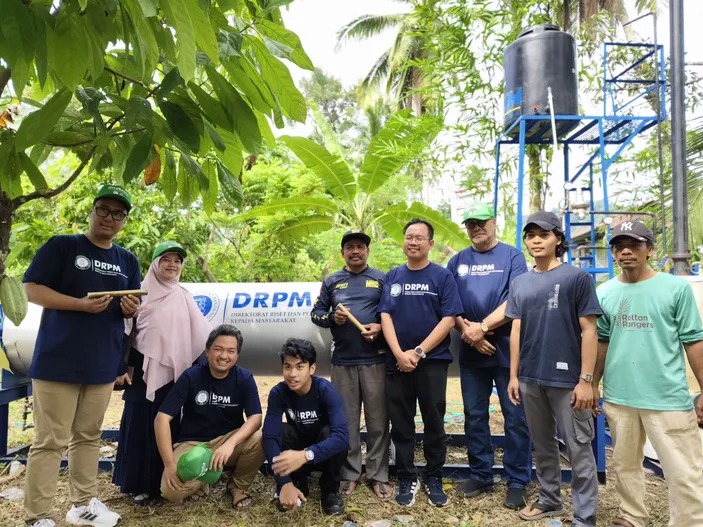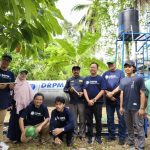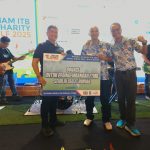FTMD ITB Introduces Eco-Friendly Rattan Processing Technology to Empower Sumpur Kudus Farmers
Sumpur Kudus, West Sumatra, is known as one of Indonesia’s prime regions for high-quality rattan production. However, local farmers have long faced various challenges in processing rattan. Due to limited access to modern technology, many are forced to sell raw rattan at low prices to middlemen, often trapped in an unfair system. Traditional processing methods, such as using diesel and kerosene for frying, also pose environmental and health risks.
As part of a community service program, a research team from the Faculty of Mechanical and Aerospace Engineering (FTMD) Institut Teknologi Bandung (ITB) has developed an innovative rattan processing machine that is more efficient, affordable, and environmentally friendly. The team, led by Poetro Lebdo Sambegoro, Ph.D., and supported by Prof. Ir. Ari Darmawan Pasek, Ph.D., Dr. Eng. Firman Bagja Juangsa, ST, M.Eng., Muhammad Alfatha Kurniadi, Joe Bambang, Yuven, Dito Suharnes, and Andrafathi Cheda Saldani, designed a set of machines including a rattan peeler, a steamer, and an oven.
This initiative aims to increase the added value of rattan by providing farmers with modern processing tools. With these machines, farmers no longer need to rely on collectors; they can process rattan independently into semi-finished or ready-to-use products with higher market value.
The innovation introduces a cost-effective, efficient, and sustainable solution by replacing expensive fossil fuels like diesel and kerosene. The system uses fire and water as its main energy sources wood, which is easily available in rural areas, serves as fuel, while abundant water is utilized for high-pressure steam processing.
Beyond being eco-friendly by reducing carbon emissions, the machine also lowers operational costs by eliminating dependence on fossil fuels. In terms of productivity, it can process up to 50 rattan poles measuring four meters each in just 30 minutes. This method not only improves efficiency but also produces smoother, more durable rattan by effectively removing lignin and sap.
Additionally, the technology empowers farmers by improving their bargaining position. They can now sell semi-processed or finished rattan products at higher prices, reducing their reliance on third parties.
The installation of this machine in Sumpur Kudus has significantly accelerated rattan processing, reduced the risk of spoilage, and enabled farmers to process rattan within a day after harvesting without waiting up to a week to transport it to urban facilities.
With a processing capacity of up to one ton, the machine also supports national export regulations that ban the export of raw rattan. This encourages value-added production at the local level, allowing farmers to earn more while contributing to sustainable industry growth.
The introduction of this technology has received positive responses from both the local community and government. Farmers now have the opportunity to produce semi-finished or finished rattan goods themselves. However, the next challenge lies in building a more sustainable rattan ecosystem, including establishing stable markets for processed rattan products. Andri, the head of Sumpur Kudus village (Wali Nagari), expressed his commitment to developing effective marketing strategies for local rattan goods.
The rattan processing machine developed by the FTMD ITB team marks a major step forward in empowering rattan farmers in Sumpur Kudus, West Sumatra. With technology that is more efficient, eco-friendly, and based on local resources, farmers can now enhance the quality and competitiveness of their products without depending on intermediaries. In addition to cutting costs and speeding up production, this innovation paves the way for a more independent and sustainable rattan industry. If widely adopted, it could not only improve farmers’ livelihoods but also strengthen Indonesia’s position as the world’s leading rattan exporter.







